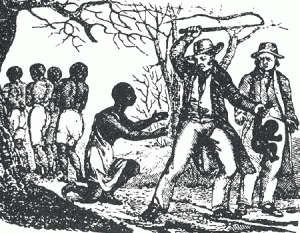While advocating for the principles of a free society, libertarians find obstacles of all sorts. Whether one sees it as a battle of ideas or — better yet — a sales campaign, sometimes our methods of persuasion and debate become a big part of the message. Thus sometimes our mistakes become the biggest obstacle to our success. Lets review three very common ones.
1. Thinking that libertarianism is “intuitive” or “obvious”
To be sure, certain moral positions (on stealing and murdering) are universal and intuitive enough, but the whole edifice is neither obvious nor easy to grasp. The problem is, most people forget how they learned and especially, forget their previous ignorance. Thus, they project a light of knowledge over their past as if they always knew. This is easy to observe when one reads giants like Mises and Rothbard. The second after we absorb some keen insight of theirs, we internalize it and begin to think it is “obvious” and should be so to others. Well, it isn’t. We acquired it through long years of studying dozens, sometimes hundreds, of books. Every libertarian I know continues to read and debate the fundamentals of libertarianism, not only applications to current events or history. This tells me that libertarianism is an unfinished edifice with many parts, even if one can sum it up in several ways. Those essentials and summaries will never replace the whole of the doctrine.
2. Assuming common ground with everyone
The fundamental clash throughout human history, Liberty vs. Power, can only be properly understood when the basics are properly identified. Let’s begin with liberty. In ancient times, liberty was defined as the ability to participate in collective decision-making and independence from other nations. Thus, liberty was about political participation and national sovereignty. The individual was not the relevant political unit. It wasn’t until the advent of Humanism, placing the individual at the center of political and economic analysis that Liberty could start meaning what us libertarians need it to mean in order for our insights to be popular at any time and place.
Power, on the other hand, means political power for us. It springs from the use of force or the threat thereof. Education, the media, tradition and others influence human behavior but they can be either chosen or rejected if needed. That’s why any talk of commercial billboards or TV content having power over society is ultimately doomed to fail. But in the same way any talk about “oppressive bosses” or “gender oppression” are confusing. Bosses cannot deprive oneself of rights, because to have a boss (as opposed to a slave-owner, a socialist dictator, a lord or a king) requires a contract in which one has freely entered. Ergo, bosses implies rights and where there are rights there is liberty, and power is absent. A boss may be demanding, rude, etc but as long as one has “exit”, there is no oppression. Gender oppression strictly means that women are denied their (individual) political rights to personal integrity and property. But gender discrimination when those rights are fully present such as in most Western countries, on the other hand is an exercise of others’ rights. When men are preferred for a job over women, it’s the company’s loss to deprive itself of that talent. But in many professions that deal with security and force, such discrimination is not only necessary but wise. Confusing a lack of women’s rights with an exercise of men’s rights that we dislike is worse than misleading: it will invite State intervention to “fix” a non-problem. Or at best, a problem that has to be solved (if need be) through civil, pacific means.
…
Three (very) common libertarian mistakesRead More »


